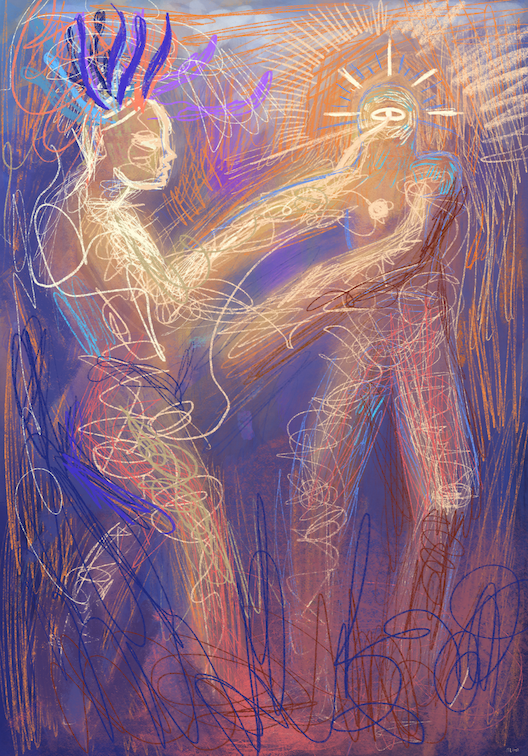What does it mean to write?
April 22, 2022
 This
piece represents the opinion of the author
.
This
piece represents the opinion of the author
.
What will seem like illegible rambling will, hopefully, embody some of the turbulent currents hidden underneath language. Like any good free-write session, its prose will upset the preconceptions about language that are ingrained in us since our first experiments with language—when well-intentioned teachers taught us how to use periods and what words go with which other ones.
This linguistic tradition has seeped into any available aperture, leaving its trace in the way we come to view the world and anything that may exist beyond it. Even my phrasing of that last thought follows a set of rules that make independent words merge into an amalgamation that is meant to make sense. There is no way for me to know whether it does, and I just need to have blind faith that some unknowable other “gets” me.
Language, in this tradition, is a thin film that separates two words that don’t belong together: sea and sky. The post-structuralist turn alerts us to how language works; signs slide endlessly across any rugged meaning, above deep waters.
Now we’re talking; now we are attuned to how writing is more like drowning in this ocean, like unsuccessfully grabbing for air. Writing isn’t like swimming, and writers shouldn’t practice swimming. Writing is more like being pulled under by the currents that travel underneath the surface, invisible yet all-determining. There has to be more to this, though, more to movement.
Right now, I can’t find a topic to write about. I can’t find a metaphor to latch onto. I can’t find a current affairs headline to use as scaffolding to give my article structure and relevancy.
All I can offer is an unsatisfying meta-commentary about what it feels like to write abstractly.
I feel like that, in itself, is a metaphor. I am imagining myself typing these words like stabbing blindly in a dark room. The only way for me to accurately articulate bodily movements and those tingling sensations of electrical currents flowing throughout our bodies is to show how language is not structured neatly. Language is a dance that we are all attuned to and perform in individual movements yet familiar rhythms.
I can describe the feeling of late modernity through language by painting a picture of murky currents that finally breach the surface. The signs that make up language flow underneath texts, like currents kissing the ocean’s floor—but can also erupt into waves that expose language’s true power over us. We are floating bodies entering a time of unrelenting social acceleration—symbolic movements with uncontrollable velocity.
Maybe to write is to have faith that these currents will send us colliding against other bodies. Maybe it is the idea that these quiet events of divine collision can create ripples on the surface of language that travel way farther than the farthest extent we can ever imagine going.
Agency only becomes possible when you dance with one another, or with many others, but never alone. I imagine this dance through immanence. Forces above and below the ocean’s surface intermingle. Both forces defy boundaries and evade definition. Divine turbulence is where the sublime forces of nature conquer and surrender space.
There may always be this delay between when situations around us change and when we finally register them, but we remain altered. It’s similar to how you never fully appreciate the little interactions that make your day until after you say goodbye. But still that smile survives long after the fact.
For me, at least, writing is a relationship with an eternal other who we love intimately. It is the world’s greatest love story.


Comments
Before submitting a comment, please review our comment policy. Some key points from the policy: